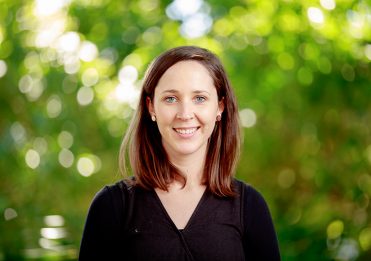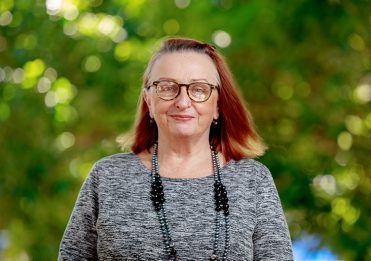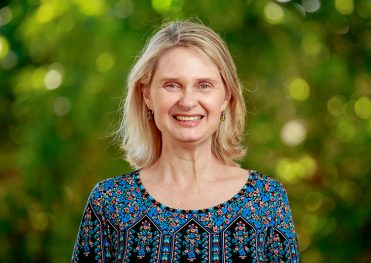Director of Service
Mrs Lynne Mungomery
How can we encourage our young people to develop the practice of lifelong giving? By encouraging the donation of quality goods, knowledge, time and money we offer opportunities for our young people to feel that they have made a positive difference to the lives of others and we can direct our students along the pathway to becoming young philanthropists of the future.
As a nation, 80.8 per cent of adult Australians made financial donations to charities and non-profit organisation in 2015-16 (Scaife & Baker, 2017). Whilst the total giving dollar amount was well up from that of a decade ago, the percentage of people who donated declined over the same period. Scaife and Baker also noted from the Giving Australia 2016 study that, ‘Those who both gave and volunteered [their time] donated nearly twice as much [money] on average as givers who did not volunteer.’ (Scaife & Baker, 2017). In an age where technology, social media and crowdfunding make it easy for us to give financial support, how can we encourage the next generation of philanthropists, our children, to give in alternate ways beyond that of simply donating cash?
The impact of giving is immense, both for the recipient and for the giver. More than financial, giving can take many forms. We should be encouraging our children to also donate their time, knowledge and goods in order to contribute to a good and just society. Whilst donating money within our financial means is relatively easy, finding the time and the appropriate opportunity to share knowledge and skills is often the greatest challenge experienced by our community service students at Girls Grammar. Rather than simply participating in an activity that is a compulsory part of our school curriculum, a desirable outcome is the broadening of the student’s attitudes and opinions. Finding the right service provider, that will enable a worthwhile giving experience, beyond assisting in the raising of (much needed) funds, can take much consideration and consultation by the student and their support networks.
Increasing the participation of our young people in service was the topic of a conversation that I recently had with Juliette Wright, founder and CEO of Givit and Givit kids. Juliette has successfully established an online platform to connect those who have, with those in need. (GIVIT, 2017). Her most recent work has been in assisting communities in Airlie Beach whose lives have been so badly impacted by Cyclone Debbie. Juliette, through her work with GIVIT, is changing the way we donate goods to those in need. By establishing an understanding of what is actually needed, and matching this with those that have the goods to donate, it is hoped that quality goods can be donated to meet a specific need in the community.
GIVIT Kids, launched by GIVIT, is an online portal providing a fun, safe and educational way for children to give new or pre-loved belongings to Aussie kids in need (GIVIT Kids, 2016). GIVIT Kids aims to engage children in giving and helps to develop a philanthropic culture in young Australians who are engaged with their community. It encourages tolerance and empathy, whilst helping to develop research and fundraising skills as well building lasting connections within their local community (GIVIT Kids, 2016).
During our discussion, Juliette mentioned that refugee children, living in Brisbane, have a need for bicycles to ride to school. The high cost of public transport and their only alternative, often a long walk to school, are resulting in high levels of absenteeism from school. There are many bicycles that children have outgrown going to waste in sheds and garages around Brisbane. Our 2017 School Charity recipient, the Romero Centre, would be most appreciative of a tangible donation of goods such as this.
We are often told that time is our most precious resource, but it is the giving of time and the willingness to be involved in hands on activity that attracts the younger Grammar girls to our school Service and Charity groups. In concluding her presentation to the recent Year 10 Ethics Assembly, Rebecca Sparrow suggested to the girls that, ‘every year that goes by, one person should be breathing easier because you are here’ (Sparrow, 2017) . Rebecca commented that this should be their legacy as human beings and it is their responsibility to find ways to give back to the community (Sparrow, 2017). This was a timely message for our Year 10 students as they commence their 15 hours of Community Service, and one that was also well supported one week later by Gemma Sisia, founder of the School of St Jude in Tanzania. Gemma helped us realise that following and realising your dreams is possible, and that education gives power and once you have an education, nobody can take it away from you. However her most powerful statement was that, ‘No matter what your situation, you should give back and help others’ (Sisia, 2017).
Whilst their background might be very different from that of a Grammar girl, students at the School of St Jude are also involved in Service and Charity Groups including Scouts, Guides and the Interact Club. Most significantly all graduates complete a year of Community Service upon completion of their Year 12 studies.
The committing of quality time, encouragement and support from care givers at home can all have an significant impact on a young person’s ability to follow their passion, share their knowledge and advocate for those in need. Holley Sommerville-Knott has been very successful in her desire to do just this. In 2014, at the age of 8, Holley was announced as one of ‘8 girls that are changing the world’ for her inspirational work as a social justice and environmental activist (McGrath, 2014). Holley, from Northern New South Wales is the CEO and Founder of her own charity, Stardust Foundation, which she created at age 8 to help the planet, people and animals in need. Now 13, Holley uses her many talents to advocate and draw attention to the many causes she is passionate about.
Holley’s mission is to spread kindness and compassion, educate and inspire people to stand up for what they believe in, unite together and co-create a sustainable and peaceful Mother Earth (ChemFreeCom Beta 2.6 Release, 2017).
Holley’s list of community contributions and achievements is extensive and she is an example of a young philanthropist who is instrumental in delivering environmental projects, who demonstrates outstanding leadership in changing community views and is determined to drive environmental change.
The internet and social media have been, and still are, revolutionary in providing a means to share knowledge and inform people of current trends and also to advise participants of the needs of others. Social media is often criticised for making us antisocial, and so we strive to reduce the time children spend using digital devices. Avoiding a negative digital footprint is very important but there is much opportunity offered by social media and the internet to be used for good (Generation Next, 2017). Thus we should be encouraging the use of social media and the internet for positive and socially responsible purposes as well as entertainment and pleasure.
An example of ‘the Potential of Pro-Social Media’ that Dan Haesler refers to, is 15 year old Jack Andraka. Jack has demonstrated how the internet is, ‘a place where only your ideas count, and we can use it to help people around the globe to innovate and change the world’ (Generation Next, 2017). Through ‘google scholar’ Jack taught himself how to develop a test for pancreatic cancer in just 18 months, a test that cost just 4 cents and eventually, through persistence and establishing contacts through social media, he captured the attention of large research labs in America (Generation Next, 2017). Thus demonstrating how the internet and social media can be a very positive influence for our young change makers as well as those wishing to follow the work of community and charity groups.
Teachers, parents and service providers can each contribute to the outcomes of the community service experience. Together we can assist our young people to give back and make a meaningful and worthwhile contribution through appropriate community service that contributes to the student’s growth, and allows them to create deep loyal connections, and appreciate the diverse nature of society.
At Brisbane Girls Grammar School we encourage our students to volunteer their time and knowledge to support causes that benefit children, the aged and those who suffer from disease or who are affected by disability. Students are also encouraged to help those that are experiencing homelessness or disadvantage and to help with funding or assistance with research or care, plus environmental preservation groups and associated causes. ‘Volunteering is about supporting non-profits or community groups by willingly giving your time, skills and enthusiasm to become involved and take action on issues that are important to you.’ (Volunteering Queensland, 2017) Grammar girls are challenged to extend themselves beyond their comfort zone, both in their choice of activity and by planning and preparing for their community service independently and with the maturity to recognise when assistance is required. Through this level of independent, personal challenge they will experience the magic of transformative service.
Questions to think about when considering community service options might be; what is my motivation to volunteer?, is there a cause close to my heart?, and are there particular skills I want to contribute or learn? (Volunteering Queensland, 2017). It is also very important for our young volunteers to consider how their community service will coordinate with their weekly schedule, the location of the placement and their transport options.
The motto of the 2017 BGGS Service Captains, Alice Dunn (12E) and Ayesha Kumar (12G) is ‘giving time help others’ shine’. Through the giving of money, quality goods, knowledge and time, we offer opportunities for our students to feel that they have made a positive difference to the lives of others and we direct our girls along the pathway to becoming young philanthropists of the future.
Read reflective commentary from Director of Service, Mrs Lynne Mungomery, on her article, ‘Encouraging our Young Philanthropists of the Future’.
Earlier this month, I found myself contemplating the following ‘Pedagogy Quote of the Week’ by Deputy Principal (Academic), Dr Bruce Addison.
‘Unless someone like you cares a whole awful lot, nothing is going to get better. It’s not!’ – Dr Seuss.
Dr Addison related the quote to our role as educators in developing a 21st century liberal education. Gratitude, compassion, empathy, respect for oneself and others, and being an actively engaged citizen, are just some of the skills we should be developing in our students (OECD, 2018).
The School’s Service program encourages students to follow their strengths and interests, and to recognise and appreciate that their small acts can make a significant difference to others. When I reflect on my original article, I feel a profound sense of pride for what our girls have achieved in the Service program and their motivation to help those in need. Our young philanthropists have and are eager to support multiple charities and organisations.
In response to the devastating drought and floods in North Queensland in January this year, the House Service Captains worked together to raise funds and show their support. While distance prevented our hands on support and the direct donation of goods, GIVIT was able to use donated funds from the girls’ Zooper Dooper Fundraiser to purchase essential goods and fuel vouchers as requested by local charities to support those in need. The Service Captains delivered an important message on School Assembly to thank the many students who had come forward to express their desire to help.
This year, two classmates from Year 7 coordinated the collection of more than 3000 Woolworths ‘Earn and Learn’ stickers and proudly packaged these together so that they could be passed on to flood-affected Oonoonba State School. The response was overwhelming from the School community and a result of the determination of these young women to promote their cause.
The School’s most recent service initiative, led by the members of the Grammar Environmental and Conservation Organisation (GECO) and supported by Property and Facilities team, was to reduce the amount of waste Girls Grammar sends to land fill each week. To educate the School community to thoughtfully dispose of their waste and make better choices regarding single use plastics and recyclable materials is an ongoing project, but well worth the effort.
Small steps can lead to big change, and through the School Service program we hope to develop in our girls a desire to make a positive impact and purposeful engagement for the future benefit of others. It can take just ‘one person to care a whole awful lot’. Just ask Dr Seuss.
References
ChemFreeCom Beta 2.6 Release. (2017). Chemical Free Community Ambassadors, Advisors & Advocates. Retrieved April 12, 2017, from Chemical Free Community: http://www.chemfreecom.com/staff/holleysomervilleknott/
Generation Next. (2017, February 22). Connected Kids – The Potential of Pro-Social Media. Retrieved February 28, 2017, from Youtube: https://www.youtube.com/watch?v=S5tPHZVfQKE
GIVIT. (2017). About GIVIT. Retrieved April 11, 2017, from GIVIT: http://givit.org.au/about-givit#
GIVIT Kids. (2016). About GIVIT Kids. Retrieved April 11, 2017, from GIVIT Kids: http://givitkids.org.au/about
McGrath, G. (2014, October 20). 8 girls that are changing the world. (Fairfax Media) Retrieved April 12, 2017, from Essential kids: http://www.essentialkids.com.au/development-advice/development/8-girls-that-are-changing-the-world-20141020-118m6s
OECD. (2018, April 5). The Future of Education and Skills. Retrieved August 15, 2019, from the Organisation of Economic Co-operation and Development: https://www.oecd.org/education/2030/E2030%20Position%20Paper%20(05.04.2018).pdf
Scaife, W., & Baker, C. (2017, March 14). There’s cause for celebration and concern in how Australians are giving to charity. Retrieved March 20, 2017, from The Conversation: https://theconversation.com/theres-cause-for-celebration-and-concern-in-how-australians-are-giving-to-charity-72969
Sisia, G. (2017, March 27). Lunch Time Presentation.
Sparrow, R. (2017, March 22). Year 10 Ethics Assembly.
Volunteering Queensland. (2017, March 27). What is student volunteering? Retrieved March 28, 2017, from National Student Volunteer Week: http://nationalstudentvolunteerweek.org.au/resources/find-a-volunteer-role#trust-yourself-have-fun




